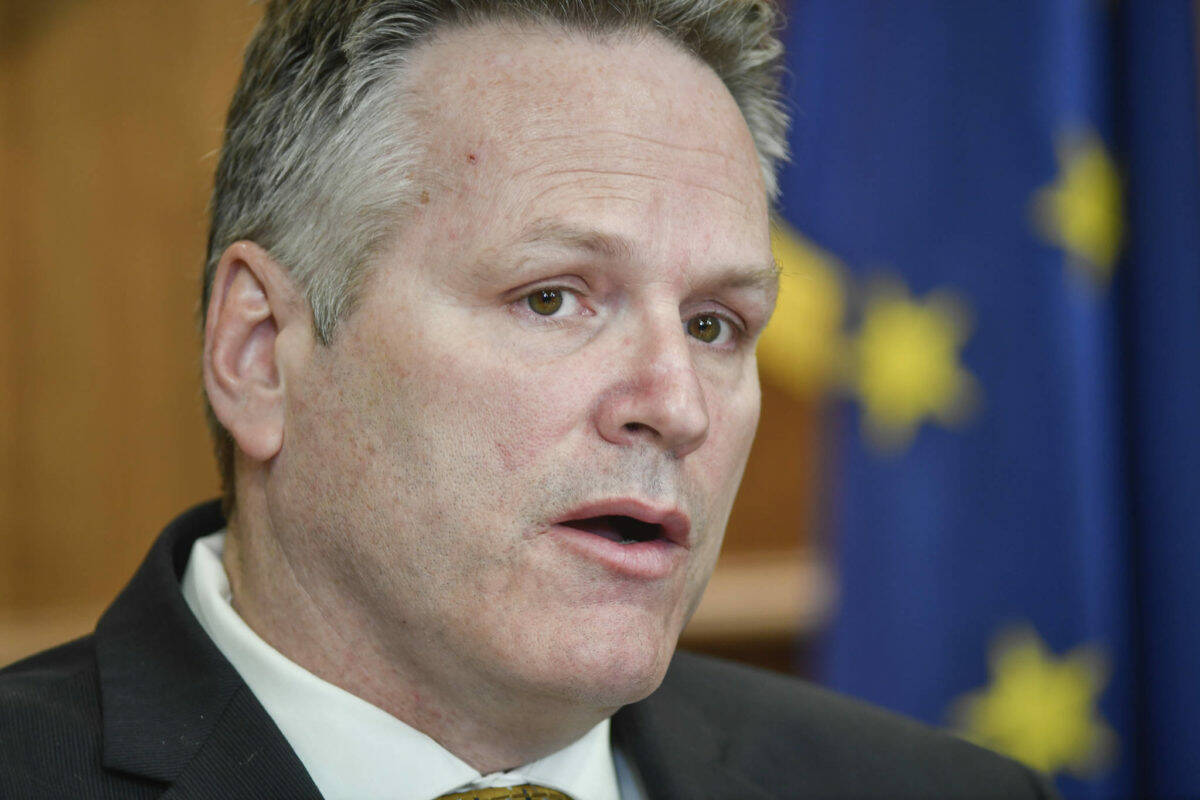By Gov. Mike Dunleavy
There has been a renaissance happening in the energy world that’s transformed carbon from a liability into an asset that can be monetized — if one has the ability to manage and store it.
No other state, and indeed few other countries, have the resources that Alaska does that will allow us to generate new revenue from these growing markets for carbon management, including carbon capture, utilization, and storage, also known as CCUS.
Alaska has vast forests and coastlines that can provide natural carbon management. Just as our forests act as carbon “sinks,” so, too, can we host offshore kelp forests that can absorb carbon, reduce ocean acidification, and generate revenue and economic activity. We also have the ability to capture and sequester carbon in basins both in Cook Inlet and the North Slope.
The discovery of oil on the Kenai Peninsula some 65 years ago provided the driving force for statehood, and since then the Cook Inlet fields have provided energy and jobs for Alaskans along with nearly 50 years of LNG exports to Japan.
The era of Cook Inlet as a major oil and gas producer is behind us, even though the Basin remains an important source of in-state energy and feedstocks for in-state refining. However, a new era is upon us where Cook Inlet’s depleted fields have the potential to continue sustaining our economy and providing revenue to the State treasury for years to come.
The Cook Inlet basin represents the largest carbon sequestration resource on the U.S. West Coast with an estimated 50 gigatons of storage potential. For perspective, that represents 50 years of carbon emissions from the entire nation of Japan.
Our currently stranded North Slope natural gas is the key to replacing Cook Inlet supplies for Alaskans and shipping low carbon energy to our Asian allies. With the deployment of CCUS in Cook Inlet, the Kenai Peninsula has a major role to play in the future production of zero carbon hydrogen and ammonia fuels that are in demand from those same Asian customers as they pursue their internal net zero emissions targets.
In short, Alaska is blessed with nearly limitless assets that can be monetized in global markets for carbon offsets and carbon removal that have grown from just more than $20 billion in 2016 to $84 billion in 2021, according to the World Bank.
Our Alaska Native corporations have been capitalizing on these markets for years since qualifying for California’s carbon cap-and-trade program. As of 2019, the carbon offsets registered in Alaska were worth $370 million and were the biggest forestry participants in the California system.
The State of Alaska does not have the statutory and regulatory structure to capitalize on these emerging carbon markets currently, so I’ll be introducing legislation in the early days of the upcoming session to address this need.
I’m asking lawmakers to take up this legislation seriously and expeditiously as a revenue source that’s part of a long-term fiscal solution that complements revenue from oil and gas and the Permanent Fund.
To those representing the backbone of our resource industry in oil and gas who may be worried that entering these carbon markets represents a shift in my support, be assured it does not. This is merely another opportunity that Alaska can capitalize on.
We will keep doing what we’ve always done: produce our resources with the highest environmental standards.
Oil and natural gas will remain in demand for decades, which will make production with the smallest carbon footprint the most attractive for investment. My vision is to make Alaska the most attractive place on the planet for those investments.
We’ve already seen this potential in the announcement by Santos and Repsol to proceed with the $2.6 billion Pikka project that will add 80,000 barrels to the pipeline, create 2,600 jobs during construction, and require 500 jobs during operations.
In the announcement approving the first phase of the project, majority owner Santos committed to ensure Pikka is a net zero project by virtue of the low carbon footprint of its operations and through carbon offsets they are pursuing with Alaska Native corporations. In its Pikka announcement, Repsol stated the project has one of the lowest carbon intensity scores of any in its upstream portfolio.
The budget deficit for Fiscal Year 2024 as introduced on Dec. 15 will no doubt revive calls for cutting the PFD or imposing taxes on Alaskans. There will no doubt be those who find fault with what isn’t in the budget, and there are also many of my own priorities that aren’t included or fully funded.
I ran for governor twice on a pledge to monetize our shared resources before I will consider asking Alaskans to bear any financial burden from a reduced PFD or new taxes. This includes monetizing our immense carbon management resources.
That’s a pledge I intend to keep. With support from the Legislature for a statutory framework that will allow us to generate revenue from these expanding carbon markets, we can preserve the PFD, provide the services that Alaskans expect, invest in our shared future through education, maintain our status as a low-tax jurisdiction, and be a global leader in low or zero carbon energy sources.
What we do in the next four months and four years will set our course for the next 50 years and beyond.
“North to the Future” isn’t just a catchy motto to me; it’s my guiding principle.
By working with like-minded legislators and stakeholders, we’ll turn that principle into policies, and in turn into a new era of prosperity for the Alaskans we serve.
Mike Dunleavy is the 12th governor of Alaska.


